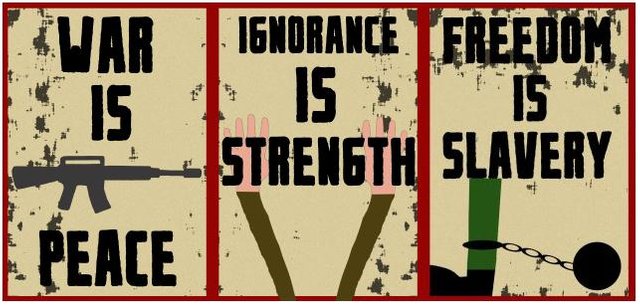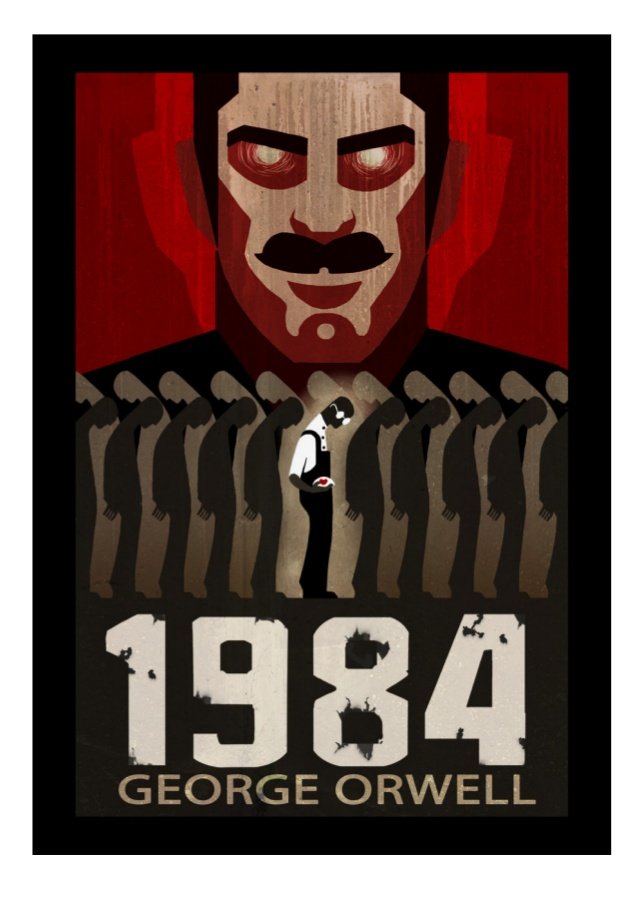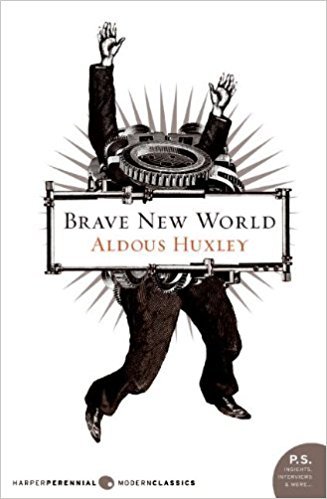Brave New World or 1984: Which One is the Dystopian Future?

(source: santa cruz bookshop)
Orwell and Huxley Had Visions of a Dystopian Future
George Orwell’s 1984 and Aldous Huxley’s Brave New World both prophesied a dystopian vision of the future where society as we know it would end. Orwell believed that “Big Brother,” the government, would hold information from us and oppress us. In contrast, Huxley stated that information would be superfluous and people would love their oppression. In other words, according to Neil Postman, “what we hate will ruin us” versus “what we love will ruin us.” With the perspective of time, I believe Huxley’s future has become the more accurate vision of our future world.

(source: amazon)
Truth is Irrelevant When You Believe Your Opinion is Fact
Huxley’s idea of people not caring about the truth is more accurate than Orwell’s idea of government hiding it from us. With today’s advancements in technology, from hacking to wikileaks, it has become harder for the government to hide its secrets. However, we are in a “fake news” world, and people no longer seem to care about truth. If a piece of news goes against a person’s opinion, they will just say it as fiction. This makes it difficult for people on opposing sides to listen to each other. People will refuse to listen to facts they don’t like.
As Postman stated, “Orwell feared that the truth would be concealed from us. Huxley feared the truth would be drowned in a sea of irrelevance.” People are overwhelmed by media overload, bombarded by “breaking news” every minute of the day. After awhile, it is easier to just stop listening. Afterall, the truth is irrelevant when people believe their opinions are facts.
Technology Rules Our Lives
Huxley believed that in the future, society would forget about writing, reading, and free expression. People would be cloned and conditioned to be satisfied with their class status and not want more than what they already have. “People are happy; they get what they want, and they never want what they can’t get” (Huxley 220). In today’s world, people have been conditioned to rely on technology. They are constantly on their phones or computers or watching TV, so much so that genuine connections between people have been affected. Youtube has replaced books; social media has replaced creativity. People don’t care about truth as long as they can be happy watching pretty visuals on a screen. The government can take away our civil rights, destroy our environment, and give tax breaks to the wealthy, but people will be content as long as they have an iPhone in their hand. People don’t notice that the technology that helps us advance in life could also be the thing that ends it.
The Things We Love Will Kill Us
On the other hand, Orwell’s idea that hate will destroy us has validity. People are more open with their animosity. Mass gun shootings are breaking records for the number of people killed, and white supremacists are openly marching. Domestic terrorism is on the rise. However, there are more people dying from the things they love, such as cars, opioids and other drugs, alcohol, cigarettes, food, and relationships. They don’t realize that the things they love are the things that will eventually hurt them. They crash their shiny cars, overdose, drink until their liver is destroyed, smoke until the cancer grows, overeat until they get a heart attack, and die from abusive relationships. Huxley writes about Linda, a woman who wanted to forgot all the pain that she endured, so she turned to the drug soma because it made her feel happy. “She took as much as twenty grammes a day. ‘Which will finish her off in month or two…’ (Huxley 154). Linda died from a soma overdose, but she didn’t care because she loved it.

(source: amazon)
Summary
Huxley’s version of the future is more accurate for today’s society than Orwell’s. People care more about technology than our fellow man, being right than the truth, and loving the things that will eventually kill them. Huxley’s vision is more real everyday.
These are classic dystopian novels that are all too relevant in today's society. Read them both and decide for yourself which one more accurately predicts the future. Let me know your opinion in the comments.
"Hello" Your publication has a lot of value, I'm also creating quality content, and I gave you a positive vote in your publication, Please give me a following vote
Thank you. I enjoy animes, so I am now following you. Follow me back.
Sneaky Ninja Attack! You have just been defended with a 14.06% upvote!
I was summoned by @rodstarr. I have done their bidding and now I will vanish...
woosh
A portion of the proceeds from your bid was used in support of youarehope and tarc.
Abuse Policy
Rules
How to use Sneaky Ninja
How it works
Victim of grumpycat?
This post has received a 6.05 % upvote from @boomerang.
Such an interesting and I would say an unusual topic. I read both of these novels as a student. Unfortunately, dystopian novels about far future tend to be so realistic.
There are also a few Russian dystopian novels. "We" by Zamyatin, "Kys'" by Tolstaya, "The Foundation Pit" by Platonov. Have you read one of those?
I also heard some good reviews about "Metro 2033". It's relatively new, 2007. The Metro universe in a post-nuclear world. As a suggestion for the next book to read:)